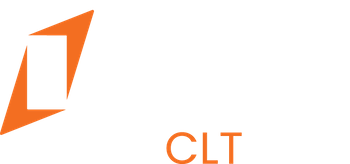In Charlotte, technology has become central to how homeowners' associations operate. From processing assessments through online payment platforms to storing important documents in secure digital portals, these systems are now essential tools for efficiency and convenience. However, with that convenience comes a heightened risk—cyber threats that can compromise personal, financial, and community data.
For HOA boards, protecting this information is more than an IT issue—it’s a matter of credibility, compliance, and community trust. Partnering with a knowledgeable Charlotte HOA manager ensures that your association is equipped with the tools, oversight, and expertise to maintain strong defenses against evolving threats.
Key Takeaways
- Cybersecurity is an essential part of HOA operations and community reputation.
- Regular training reduces the likelihood of successful phishing or scam attempts.
- Routine audits help uncover vulnerabilities before they become critical issues.
- Professional oversight ensures compliance with laws and security best practices.
- A security-focused culture increases homeowner trust and engagement.
Creating a Security-Focused HOA Culture
The most effective cybersecurity plans start with people, not just technology. Every individual with access to HOA systems—board members, management staff, and approved vendors—should understand their role in keeping the community’s data safe.
Practical ways to strengthen this culture include:
- Using strong, unique passwords for all accounts and updating them regularly.
- Implementing multi-factor authentication (MFA) for accounts containing sensitive data.
- Restricting access so that only necessary personnel can view or edit confidential files.
- Making cybersecurity updates a recurring agenda item in board meetings.
- Providing quarterly training sessions on identifying scams, phishing attempts, and suspicious activity.
In Charlotte’s larger HOA communities, a single compromised account can lead to far-reaching consequences, making prevention and education non-negotiable.
How PMI CLT Protects HOA Data
PMI CLT combines local knowledge of Charlotte’s HOA landscape with advanced digital protections, ensuring technology is an asset—not a liability—for your community.
Our safeguards include:
- Encrypted payment processing for all assessments and fees.
- Secure resident and board portals with encryption for all communications.
- Cloud-based storage with automated, encrypted backups for critical records.
- Role-based permissions to control access to sensitive data.
- Continuous monitoring and timely updates to address emerging threats.
We also provide operational guidance, using insights from innovative HOA engagement strategies to help boards integrate technology with effective governance.
Performing Regular HOA Security Audits
Even with strong safeguards, ongoing audits are essential to ensure vulnerabilities don’t go unnoticed. A thorough HOA cybersecurity audit should:
- Document all software, platforms, and devices currently in use.
- Identify every individual with access to sensitive data.
- Verify that encryption and MFA are properly implemented.
- Confirm that all operating systems and applications are up to date.
- Establish written rules for using both HOA-owned and personal devices for association work.
Acting quickly on audit results not only prevents breaches but also reassures residents that their HOA is committed to safeguarding their information.
The Value of Professional Oversight
While self-managed HOAs may try to handle cybersecurity in-house, the reality is that without specialized expertise, it’s easy to miss critical updates, overlook threats, or fall out of compliance with state or federal regulations.
Professional management provides:
- Access to pre-vetted, HOA-specific technology with built-in security features.
- Ongoing monitoring and automatic updates that reduce vulnerability windows.
- Compliance with North Carolina privacy requirements and national standards.
- Centralized communication tools that keep board-resident exchanges secure.
- Guidance on aligning cybersecurity with broader governance policies.
PMI CLT also helps boards improve homeowner participation, offering proven methods for getting more residents involved in HOA meetings.
Preparing Charlotte HOAs for the Future
With more HOA services shifting online—ranging from maintenance requests to architectural approvals—boards must prepare for increased digital risks. Forward-thinking HOAs in Charlotte are taking proactive steps, such as:
- Reviewing and updating technology policies annually.
- Creating an incident response plan to minimize the impact of any breach.
- Vetting all vendors to ensure they meet HOA cybersecurity standards.
- Staying updated on emerging threats like AI-driven phishing scams.
- Educating residents on their role in protecting personal accounts and devices.
By embedding these measures into routine operations, HOAs can adopt new technologies confidently while keeping data secure.
Building Trust Through Cybersecurity
A robust cybersecurity program doesn’t just protect data—it strengthens community trust. Homeowners want assurance that their personal and financial details are in safe hands.
When boards are transparent about their security measures—sharing audit updates, training schedules, or new protection features—it sends a clear message: We take your privacy seriously. That trust can lead to greater homeowner engagement and cooperation.
North Carolina Compliance and Legal Considerations
HOAs in Charlotte must comply with both North Carolina laws and applicable federal privacy regulations when handling personal data. Noncompliance can lead to fines, legal action, or operational disruptions. Professional management helps ensure that associations meet these requirements and adapt as laws change.
Cybersecurity as an Ongoing Commitment
Protecting digital assets is not a one-time project. Threats evolve, and so must your defenses. Ongoing board education, regular audits, and professional guidance are essential for maintaining a secure and efficient HOA.
Taking the Next Step Toward HOA Security
Your community’s digital safety impacts everything from resident trust to operational stability. PMI CLT offers secure systems, board training, and responsive support tailored to Charlotte HOAs. Strengthen your association’s future by exploring self-managed HOA services from PMI CLT today.
FAQs
Q1: How often should a Charlotte HOA conduct a cybersecurity audit?
At least once annually, though twice a year is better for HOAs with high online activity.
Q2: What is the most common cyber threat to HOAs?
Phishing attacks targeting board members and staff are the most frequent, aiming to steal login credentials or financial information.
Q3: Can an HOA be liable for a data breach?
Yes. If it’s found that the HOA failed to take reasonable precautions, it can face legal and financial repercussions.
Q4: Do small HOAs in Charlotte need the same level of cybersecurity as larger ones?
Absolutely. Even small associations handle sensitive data that requires protection.
Q5: How can residents help support HOA cybersecurity?
By using strong passwords, being cautious with suspicious emails, and following the HOA’s security guidelines.


